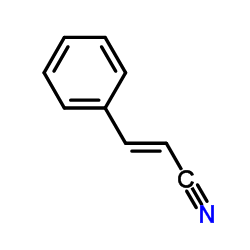Reversible targeting of noncatalytic cysteines with chemically tuned electrophiles.
Iana M Serafimova, Miles A Pufall, Shyam Krishnan, Katarzyna Duda, Michael S Cohen, Rebecca L Maglathlin, Jesse M McFarland, Rand M Miller, Morten Frödin, Jack Taunton
文献索引:Nat. Chem. Biol. 8 , 471-6, (2012)
全文:HTML全文
摘要
Targeting noncatalytic cysteine residues with irreversible acrylamide-based inhibitors is a powerful approach for enhancing pharmacological potency and selectivity. Nevertheless, concerns about off-target modification motivate the development of reversible cysteine-targeting strategies. Here we show that electron-deficient olefins, including acrylamides, can be tuned to react with cysteine thiols in a rapidly reversible manner. Installation of a nitrile group increased the olefins' intrinsic reactivity, but, paradoxically, eliminated the formation of irreversible adducts. Incorporation of these electrophiles into a noncovalent kinase-recognition scaffold produced slowly dissociating, covalent inhibitors of the p90 ribosomal protein S6 kinase RSK2. A cocrystal structure revealed specific noncovalent interactions that stabilize the complex by positioning the electrophilic carbon near the targeted cysteine. Disruption of these interactions by protein unfolding or proteolysis promoted instantaneous cleavage of the covalent bond. Our results establish a chemistry-based framework for engineering sustained covalent inhibition without accumulating permanently modified proteins and peptides.
相关化合物
| 结构式 | 名称/CAS号 | 分子式 | 全部文献 |
|---|---|---|---|
 |
肉桂腈
CAS:1885-38-7 |
C9H7N |
|
The spectroscopy and photochemistry of quinioline structural...
2015-08-21 [J. Chem. Phys. 143 , 074304, (2015)] |
|
Formation of mercapturic acids from acrylonitrile, crotononi...
1981-01-01 [Drug Metab. Dispos. 9(3) , 246-9, (1981)] |
|
Synthesis and use of an in-solution ratiometric fluorescent ...
2007-01-01 [Nat. Protoc. 2(1) , 227-36, (2007)] |
|
Direct oxidative coupling of benzenes with acrylonitriles to...
2010-09-21 [Org. Biomol. Chem. 8(18) , 4071-3, (2010)] |
|
Use of achiral/chiral SFC/MS for the profiling of isomeric c...
2006-06-01 [Anal. Chem. 78(11) , 3835-8, (2006)] |